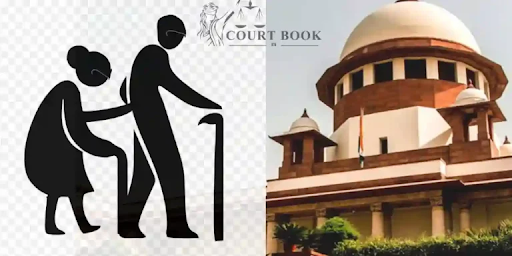In a significant ruling protecting senior citizens, the Supreme Court has reaffirmed that children or relatives can be evicted from an elderly person’s property if they fail to fulfill their duty of care and maintenance.
Also Read: Supreme Court Delivers Big Win for Homebuyers: Builders Must Pay 18% Interest on Delayed Possession
Case Background
An 80-year-old man had moved the Supreme Court after his son refused to let him stay in the two properties he had purchased in Mumbai. Despite being financially stable, the son kept both homes under his possession and denied his father residence.
The man and his 78-year-old wife had shifted to Uttar Pradesh for a period, leaving the properties behind. However, when they attempted to return, the son barred them from entering.
Tribunal’s Intervention
In July 2023, the elderly couple approached the Maintenance Tribunal under the Maintenance and Welfare of Parents and Senior Citizens Act, 2007. The tribunal directed the son to:
- Hand over possession of both properties to his parents.
- Pay ₹3,000 per month towards their maintenance.
This decision was later upheld by the appellate tribunal.
Also Read: Supreme Court Slams Speculative Investors, Calls Them ‘Slow Poison’ for Real Estate
Bombay High Court’s Ruling
Challenging the tribunal’s order, the son approached the Bombay High Court, which sided with him. The High Court ruled that the tribunal had no jurisdiction to evict him, observing that he too was a senior citizen.
Supreme Court’s Verdict
A bench of Justices Vikram Nath and Sandeep Mehta overturned the High Court’s decision, restoring the tribunal’s authority. The court emphasized:
- The 2007 Act was designed as a welfare legislation to safeguard senior citizens’ rights.
- Tribunals are empowered to order eviction of children or relatives if they neglect their obligation to maintain elderly parents.
- Such provisions must be interpreted liberally to uphold the law’s humanitarian purpose.
The Supreme Court clarified that the son’s financial independence and refusal to let his father live in his own property amounted to a clear breach of statutory obligation.
Also Read: Best Ways to Save Stamp Duty on Property Purchase
Key Takeaway
This ruling strengthens the rights of elderly parents under Indian law, ensuring they cannot be deprived of shelter and dignity by their own children.
In a significant ruling protecting senior citizens, the Supreme Court has reaffirmed that children or relatives can be evicted from an elderly person’s property if they fail to fulfill their duty of care and maintenance.
Also Read: Supreme Court Delivers Big Win for Homebuyers: Builders Must Pay 18% Interest on Delayed Possession
Case Background
An 80-year-old man had moved the Supreme Court after his son refused to let him stay in the two properties he had purchased in Mumbai. Despite being financially stable, the son kept both homes under his possession and denied his father residence.
The man and his 78-year-old wife had shifted to Uttar Pradesh for a period, leaving the properties behind. However, when they attempted to return, the son barred them from entering.
Tribunal’s Intervention
In July 2023, the elderly couple approached the Maintenance Tribunal under the Maintenance and Welfare of Parents and Senior Citizens Act, 2007. The tribunal directed the son to:
- Hand over possession of both properties to his parents.
- Pay ₹3,000 per month towards their maintenance.
This decision was later upheld by the appellate tribunal.
Also Read: Supreme Court Slams Speculative Investors, Calls Them ‘Slow Poison’ for Real Estate
Bombay High Court’s Ruling
Challenging the tribunal’s order, the son approached the Bombay High Court, which sided with him. The High Court ruled that the tribunal had no jurisdiction to evict him, observing that he too was a senior citizen.
Supreme Court’s Verdict
A bench of Justices Vikram Nath and Sandeep Mehta overturned the High Court’s decision, restoring the tribunal’s authority. The court emphasized:
- The 2007 Act was designed as a welfare legislation to safeguard senior citizens’ rights.
- Tribunals are empowered to order eviction of children or relatives if they neglect their obligation to maintain elderly parents.
- Such provisions must be interpreted liberally to uphold the law’s humanitarian purpose.
The Supreme Court clarified that the son’s financial independence and refusal to let his father live in his own property amounted to a clear breach of statutory obligation.
Also Read: Best Ways to Save Stamp Duty on Property Purchase
Key Takeaway
This ruling strengthens the rights of elderly parents under Indian law, ensuring they cannot be deprived of shelter and dignity by their own children.







